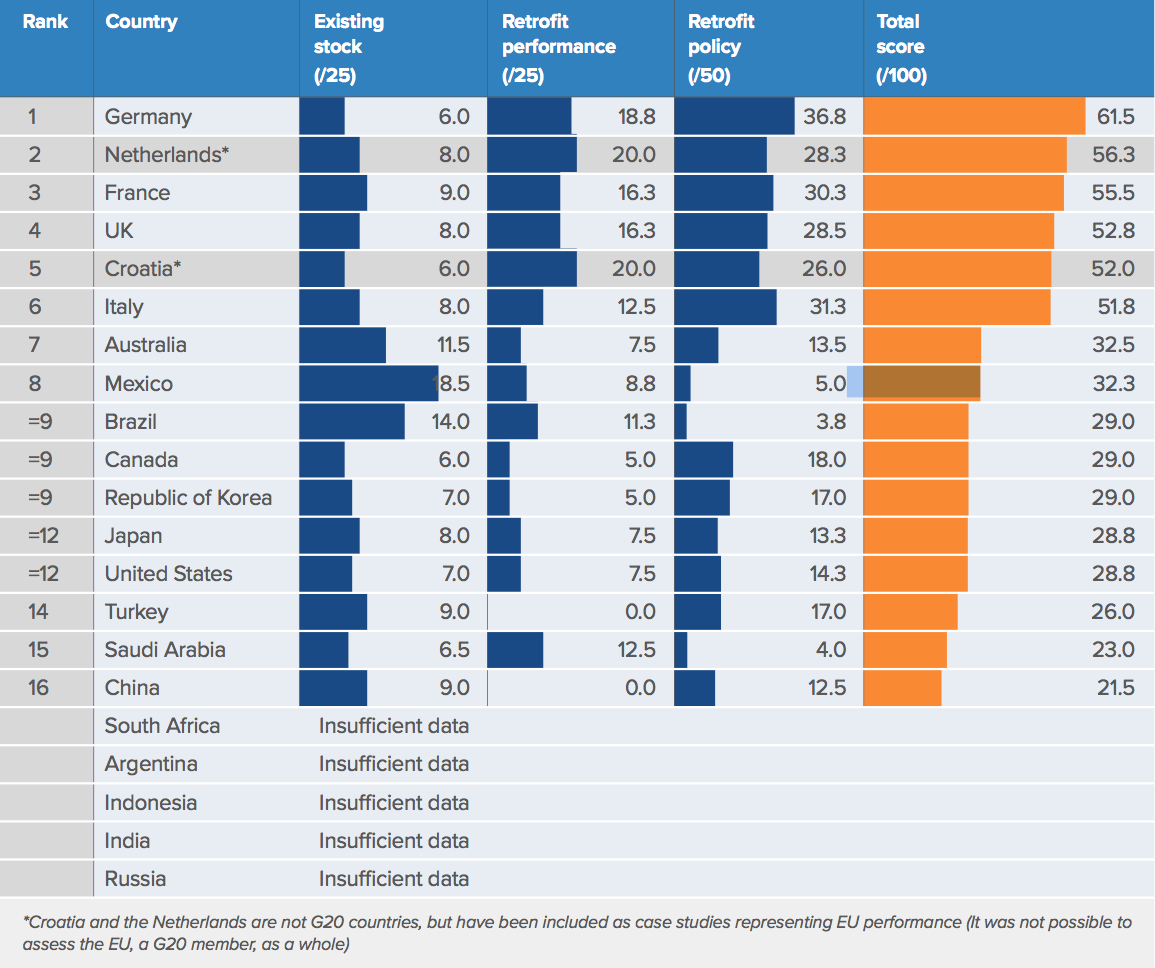
None of the world’s richest countries are retrofitting their building stocks anywhere near fast enough to meet carbon reduction targets they signed up to under the Paris Agreement in December 2015, a new study has found.
Germany scores highest with an insufficient 61.5%. The UK scores just under 53%. The US, Canada and Japan come in below 30%, and China gets just 21.5%.
Countries need to score above 80% to be considered as sufficiently bringing buildings’ emissions down, says the report.
G20 countries represent more than 80% of global GDP, it notes.
Around the world, fewer than 1% of existing buildings a year are getting the energy-efficiency renovations they’ll need.
That figure must leap to 2.5% a year by 2030 if countries are to hit their net zero by 2050 commitments, according to the International Energy Agency (IEA).
To get on track, buildings’ energy usage must drop five times quicker over the next decade than it did between 2015 and 2020, says sustainability consultancy 3Keel, who carried out the analysis for insulation manufacturer Kingspan.
That entails achieving a 50% cut in direct emissions and 60% cut in indirect emissions by 2030, it adds.

To derive each country’s score, 3Keel analysed published data on the energy performance of the existing building stocks of most G20 countries, the change in their buildings’ energy intensity and emissions through retrofits in the last decade, and governments’ stated policies to push retrofits in the future. Existing stock counted for 25% of countries’ score, retrofit performance 25%, and retrofit policy 50%.
Globally, buildings are responsible for 37% of energy-related carbon emissions, 3Keel said. Of that, 27% is from heating, cooling and electricity, and 10% from embodied emissions from construction and maintenance.
“Our findings clearly show that we urgently need to significantly increase the retrofit rate globally and ambitious government action will be vital to support the building and construction sector,” said the report author, 3Keel’s Michael Lord.
The IEA has calculated that deep energy retrofits of buildings can cut energy demand through heating by two-thirds or more. Retrofitting 20% of buildings in advanced economies over the next five years would reduce CO2 emissions from heating by around one-fifth, it adds.
“We have the tools, solutions and technologies needed to improve energy performance in buildings. We now need to apply these at scale,” said Bianca Wong, Kingspan’s head of sustainability.






